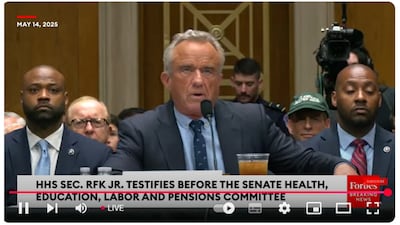Changes made in response to the COVID-19 pandemic may be here to stay at the US Food and Drug Administration, commissioner Stephen Hahn said in a presentation organized as part of the Medical Device Innovation Consortium (MDIC)’s annual public forum on 18 June.
Hahn, who was sworn in as head of the agency last December, had only a few months as commissioner under his belt before the COVID-19 crisis reached the US. The oncologist served as the chief medical executive at the University of Texas MD Anderson Cancer Center before joining the FDA
Read the full article – start your free trial today!
Join thousands of industry professionals who rely on Medtech Insight for daily insights
- Start your 7-day free trial
- Explore trusted news, analysis, and insights
- Access comprehensive global coverage
- Enjoy instant access – no credit card required
Already a subscriber?








